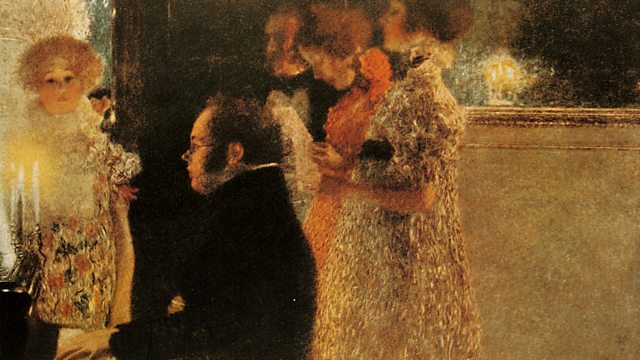
Episode 1
Donald Macleod explores the musical output of the teenage Schubert, who had developed a musical maturity well beyond his years. With Mass in F (1st mvt), Erlkonig, Symphony No 5.
This prodigiously talented composer led a very full but all too brief life, dying at the age of just 31, in 1828. He is probably best known for the vast number of songs he wrote throughout his life - around 600 of them, including the two song cycles 'Die Schöne Müllerin' and 'Winterreise' plus some of the most popular symphonic and chamber music in the repertoire, such as the 'Unfinished' and 'Great C major' Symphonies and the 'Trout' Quintet. This week Donald Macleod looks at the important role the colourful individuals in Schubert's social circle had on him and his music, and how his decadent lifestyle contributed to his untimely death.
He was an intensely prolific composer - in his 18th year alone he produced around 200 works. And in spite of immense mental and physical problems he continued to do so, writing some of his best-loved music in his final year.
Schubert suffered from severe mood swings most of his adult life. When he was in his mid-twenties, they became far more extreme and his friends reported periods of dark despair and violent anger. It's hard to know at this distance, to what extent his decadent lifestyle affected his behaviour but it greatly increased his chances of succumbing to one of the major killers of the time - syphilis. From then on, his fate was sealed - although he had periods of remission, it irreparably damaged his health and if typhoid fever hadn't struck him down first, would undoubtedly have killed him.
In the first programme, Donald looks at Schubert's teenage years when he had already developed a musical maturity well beyond his years, including two of his most popular Goethe settings, a symphony written for his friends and family to play and his first mass, conducted by the composer, at the tender age of seventeen.
Last on
More episodes
Previous
You are at the first episode
Music Played
-
![]()
Franz Schubert
Heidenröslein (Goethe)
Performers: Ian Bostridge (tenor), Julius Drake (piano)
- EMI CDC556347-2.
- 5.
-
![]()
Franz Schubert
Mass in F – 1st mvt: Kyrie
Performers: Lucia Popp (soprano), Brigitte Fassbaender (alto), Peter Schreier (tenor), Dietrich Fischer-Dieskau (bass), Bavarian Radio Symphony Orchestra and Chorus, Wolfgang Sawallisch, conductor
- EMI CMS764778-2.
- 3.
-
![]()
Franz Schubert
String Quartet in Eb, D87 - Final movement
Performer: Belcea Quartet
- EMI 557419-2.
- 9.
-
![]()
Franz Schubert
Erlkonig (fourth version)
Performer: John Mark Ainsley (narrator and Erlking), Michael George (the father), Christine Schäfer (the child)
- Hyperion CDJ33024.
- 11.
-
![]()
Franz Schubert
Symphony No.5
Performer: Royal Concertgebouw Orchestra, Nicholas Harnoncourt (conductor)
- Teldec 4509-91184-2.
Broadcasts
- Mon 19 Apr 2010 12:00���˿��� Radio 3
- Mon 19 Apr 2010 22:00���˿��� Radio 3
Vaughan Williams Today
Beethoven Unleashed – the box set
What was really wrong with Beethoven?
Composers A to Z
Who knew? Five eye-opening stories from Composer of the Week
Five reasons why we love Parry's Jerusalem
What is the strange power of Jerusalem which makes strong men weep?
A man out of time – why Parry's music and ideas were at odds with his image...
The composer of Jerusalem was very far from the conservative figure his image suggests.
Composer Help Page
Find resources and contacts for composers from within the classical music industry.






